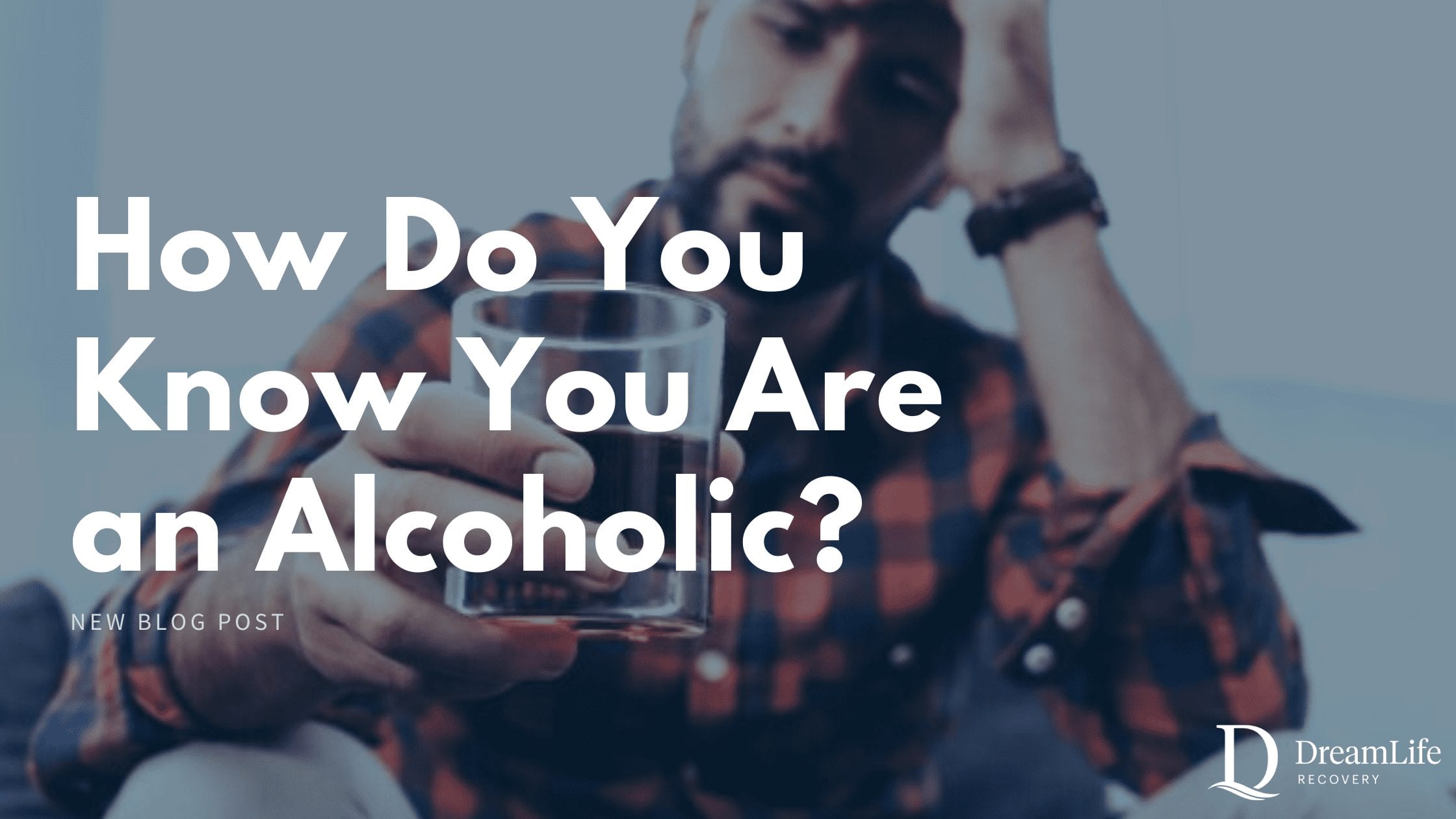How Do You Know You Are an Alcoholic?


Written By
DreamLife RecoveryWhat do you think when you hear the word alcoholic? Maybe the stereotype of someone who is drunk 24/7 and can’t hold a steady job comes to mind. But that’s not the only type of alcoholic out there. There are some people that you would never realize have a problem because they are “functional” or “high-functioning” alcoholics. These people might be successful and even have high-power jobs.
To understand if you are an alcoholic or not, you have to identify the difference between casual drinking, alcohol abuse, and alcoholism. While all of these have one thing in common—alcohol consumption—they can be very different.
Am I An Alcoholic?
If you are asking yourself, “Am I an alcoholic?” then you recognize that there may be an issue. However, consuming alcohol doesn’t automatically make one an alcoholic.
Casual drinking, also known as social drinking, is when someone drinks alcohol on occasion. This may be a few drinks with friends, wine with dinner, or enjoying a glass of champagne as a toast to a celebration. Casual drinkers usually drink responsibly and don’t get drunk or black out.
Alcohol abuse is categorized by a pattern of excessive drinking, despite negative consequences. For those who abuse alcohol, drinking can start off as casual but turn into a problem. These types of drinkers tend to drink more than they mean to and regret their decisions the next day. They may need help to quit drinking, as they might have difficulty doing it on their own.
Alcoholism is when someone has an actual dependency on alcohol. Alcoholics tend to drink daily to prevent any withdrawal side effects and have a hard time controlling how much alcohol they consume at a time. It is likely that alcohol has a negative effect on various aspects of their lives such as work, home life, or relationships.
It is not uncommon for casual drinking to turn into alcohol abuse. If this is sustained for prolonged periods of time, it can turn into alcoholism. One way to determine if you are an alcoholic is to use the CAGE assessment. It consists of four questions:
- Have you ever felt you should cut down on your drinking?
- Have people annoyed you by criticizing your drinking?
- Have you ever felt guilty or bad about your drinking?
- Have you ever had a drink first thing in the morning to steady your nerves or to get rid of a hangover?
If you answer yes to two or more of the questions, it is a sign that you should consult a professional for help.

What are the Signs of Alcoholism?
There are multiple signs of alcoholism, and while some are apparent, others may be more difficult to identify. When you are addicted to alcohol, you develop a dependency on it. It may appear in the form of having a drink first thing in the morning to cure last night’s hangover or to calm your nerves.
Do You Need Help In Columbus?
Get HelpSome other signs of alcoholism:
- Not being able to control the amount you drink once you start
- Feeling guilty about drinking
- Isolating yourself to drink to avoid judgment from others
- Getting in trouble with the law due to alcohol
- Lack of interest in usual hobbies and activities since you started drinking
- Craving alcohol
- Forgetting what you did while drinking, aka blacking out
- Experiencing problems with friends and family as a result of drinking
- Hiding the amount of alcohol you drink
- Failed attempts to stop drinking
- Inability to have fun or relax without a drink
- Avoiding dealing with your emotions: depression, anger, sadness, etc.
If you experience signs of alcohol withdrawal, that is a huge indication that you might be an alcoholic. Acute alcohol withdrawal is a result of physical alcohol dependence and presents itself when someone with long-term alcohol abuse stops drinking. Depending on the level of alcohol abuse, symptoms can range anywhere from mild to very dangerous.
Symptoms of withdrawal include:
- Anxiety
- Mood swings
- Irritability
- Sweating
- Insomnia
- Loss of appetite
- Increased heart rate
- High blood pressure
- Shakes or tremors
If you are a long-time drinker and are experiencing any of these symptoms, you should contact a professional recovery center. Alcohol withdrawal can be very dangerous and should not be done “cold turkey,” as serious health problems can arise.
Paths To Alcoholism Recovery
Recognizing that you have a problem is the first step of recovery. If you have the thought, “Am I an alcoholic?” at all, it may be time to contact a professional for an evaluation for alcohol addiction treatment. Whether alcohol is controlling your life publicly or you are a high-functioning alcoholic, help is available. Contact DreamLife Recovery today and learn more about our individualized addiction treatment programs and services.
Resources:
- What are Symptoms of an Alcohol Use Disorder? – National Institute on Alcohol Abuse and Alcoholism, November 2016
- “Alcohol Addiction Signs: Recognizing The Signs And Symptoms Of Alcoholism – Foster, Linda, MA; Rev. by Niya Jones, MD, MPH; Everyday Health, The Huffington Post, 22 August, 2012
- Benton, S. (2009). Understanding the High-functioning Alcoholic: Professional Views and Personal Insights. Westport, CT: Greenwood Publishing Group
- “What Is a Functional Alcoholic?” – VeryWellMind, Buddy T., Rev. by John C. Umhau, MD, MPH, CPE; 17 September, 2020
- SAMHSA, Center for Behavioral Health Statistics and Quality. 2019 National Survey on Drug Use and Health. Table 2.17B – Alcohol Use in Lifetime among Persons Aged 12 or Older, by Age Group and Demographic Characteristics: Percentages, 2018 and 2019. https://www.samhsa.gov/data/sites/default/files/reports/rpt29394/NSDUHD…. Accessed December 8, 2020






